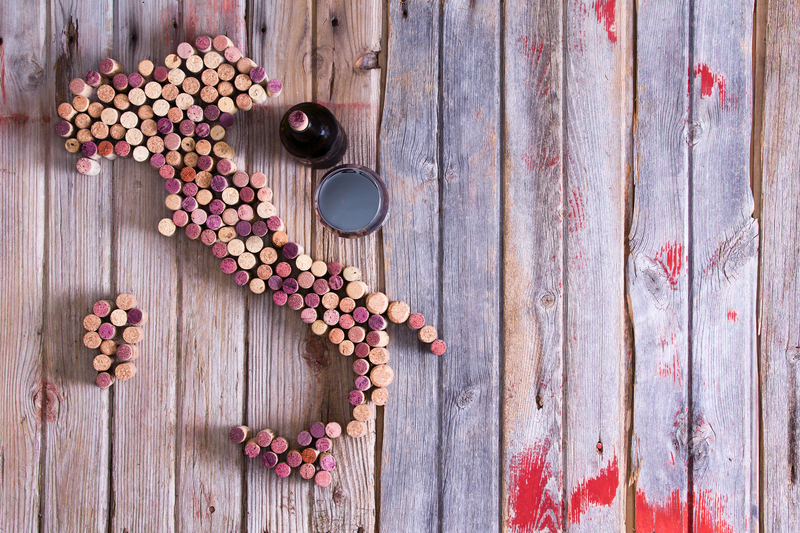Turn Outdated Clothes into Trendy Pieces: A Comprehensive Guide
Are you staring at a closet full of clothes you never wear? Wondering what to do with your outdated garments? Don't throw them away! Instead, discover how to turn outdated clothes into trendy pieces that you'll love to wear again. In this in-depth guide, we'll explore creative ways to transform your old fashion into modern, chic styles that suit today's trends. You'll save money, reduce waste, and unleash your inner fashion designer!
Why Upcycle Old Clothes?
- Sustainability: Upcycling reduces landfill waste and promotes an eco-friendly lifestyle.
- Cost-Effective: Update your wardrobe without spending a fortune on new clothes.
- Unleash Creativity: Express your personality by designing unique pieces not found in stores.
- Preserve Sentimental Value: Give new life to pieces with memories attached.
Let's explore the many ways you can turn out-of-style clothes into fashionable favorites!

Assessing Your Wardrobe: The First Step
Audit Your Closet
Begin by removing all your outdated garments from your closet and laying them out. Look for items that are:
- Out of style or no longer fit your current aesthetic
- Damaged, stained, or worn out in places
- Sentimentally valuable but rarely worn
Identify Potential for Renewal
Ask yourself questions like:
- Can I shorten this dress or skirt?
- Would this shirt look better cropped?
- Is there a way to remove the stain or cover it artistically?
- Could I add new elements like patches, embroidery, or paint?
Easy Techniques to Transform Old Clothing
1. Cropping & Hemming
The fastest way to turn old clothing into trendy items is by altering the length. Cropped tops, jeans, and jackets are all the rage right now.
- Cropped Tops: Use fabric shears to cut t-shirts or sweatshirts above the waist for an instant makeover.
- Raw Hem Jeans: Cut your jeans to ankle length and leave the edges frayed for a boho vibe.
- Mini Skirts from Dresses: Transform outdated dresses into mini skirts by trimming and hemming.
2. Dyeing and Bleaching
Update faded or stained pieces by experimenting with dye or bleach.
- Tie-Dye Revival: Use bold colors to refresh white shirts, socks, or even denim. Tie-dye is back in fashion!
- Ombre Effects: Dip the ends of a shirt or skirt in dye to create a fading color effect.
- Bleach Art: Use bleach pens to draw patterns on old jeans or dark shirts. Always wear gloves and work in a well-ventilated area.
3. Add Embellishments
Accessories and decorative additions can reinvent basic pieces into fashion statements.
Try these trends:
- Iron-on Patches and Pins: Custom patches can cover flaws and create a unique look on jackets or backpacks.
- Rhinestones and Studs: Add sparkle to collars, belts, or the pockets of your jeans.
- Embroidery: Hand-stitch floral designs, names, or motivational quotes to plain shirts and denim.
- Lace and Ribbons: Sew lace onto sleeves or hemlines for a romantic vibe.
4. Layering & Mixing Fabrics
Combine different items or materials to bring new life to old wardrobe staples.
- Patchwork Denim: Use scraps from other clothes to patch jeans or jackets in a funky, Y2K style.
- Sleeve Mix-Up: Replace the sleeves of a worn-out jacket or hoodie with contrasting fabric for a statement piece.
- Layered Looks: Stitch two shirts together for a double-collar effect, or add a panel of fabric to a skirt for volume and flair.
5. Re-purpose & Reimagine
Some pieces might be beyond repair or simply not wearable as-is. Don't toss them yet!
- Tote Bags from Tees: Cut and sew old t-shirts into fashionable, reusable shopping bags.
- Scrunchies from Leftovers: Use spare fabric to create on-trend hair accessories.
- Pillow Covers: Upcycle those bold 90s shirts into funky pillowcases.
- Scarves and Headbands: Turn silk or cotton blouses into stylish neck or hair scarves.
Inspirational DIY Fashion Transformations
Pairings that Work Wonders
Sometimes, it's not about drastic changes but clever styling. Some of the most fashionable wardrobes rely on pairing modern trends with thoughtfully upcycled pieces, like:
- A vintage graphic tee cut into a crop top, paired with high-waisted jeans and statement boots
- An oversized blazer with new buttons, styled over a slip dress
- Old denim jackets painted with abstract art, worn with neutral basics
- Pants turned into shorts and styled with a tucked-in classic white shirt
Celebrity and Influencer DIYs
Many style icons and influencers are now embracing the upcycling movement. Designers like Stella McCartney and Emma Watson have advocated for sustainable wardrobes, and you can spot countless tutorials from social media stars showing how they transform thrift store finds into must-have outfits.
Essential Tools and Materials
You don't need a fully equipped sewing studio to get started. Here are the basics you'll need for most DIY projects:
- Sharp Fabric Scissors: For clean, precise cuts
- Sewing Kit: Needles, thread (various colors), seam ripper, pins
- Measuring Tape
- Fabric Glue or Iron-on Adhesive for no-sew options
- Fabric Dye/Bleach
- Patches, Studs, Rhinestones, and Embellishments
Tips for Achieving a Professional Look
When you convert old clothes into trendy pieces, it's important to finish them well so they last and look store-bought.
- Finish Raw Edges: Use a zig-zag stitch or fabric glue to prevent fraying.
- Iron Everything: A well-pressed piece looks polished and professional.
- Start Small: Practice on less valuable items before upgrading favorite pieces.
- Fit Matters: Adjust any alterations for your body shape.
Common Mistakes and How to Avoid Them
- Cutting Too Much: Always measure twice and cut once. Less is more--you can always trim more later.
- Ignoring Wear and Tear: Reinforce thin or torn areas before customizing to avoid further damage.
- Skipping the Try-On: Try on clothes as you go, especially when cropping or adjusting fit.
- Rushing the Process: Take your time. A careful approach results in better, longer-lasting pieces.
Upcycling Clothes for Different Seasons
You can transform out of date clothes to suit any season with a little planning!
- Summer: Turn jeans into shorts, crop tees, and add fun tie-dye colors.
- Autumn: Add elbow patches to sweaters or layer lace on denim jackets.
- Winter: Create leg warmers from old sweaters and sew together patchwork scarves.
- Spring: Embroider florals onto light jackets or add pastel dye washes.
Where to Find Inspiration
Looking for fresh ideas to upcycle outdated clothing into chic pieces? Try these sources:
- Pinterest: Search for 'DIY clothing transformations' and 'upcycle fashion.'
- Instagram & TikTok: Follow hashtags like #UpcycledFashion and #SustainableStyle.
- Fashion Blogs: Many bloggers share tutorials and before-and-after photos.
- YouTube: Full-length instructional videos for beginners and advanced DIYers.

Environmental Impact of Upcycling Clothes
Every time you revamp old garments into trendy pieces, you're making a positive impact on the planet.
- Reduces Waste: The textile industry contributes millions of tons of waste to landfills yearly. Upcycling helps cut this down.
- Saves Energy & Water: Producing new clothes uses vast resources. Extending garment life conserves these.
- Promotes Mindful Consumption: You're less likely to over-shop when you value and refashion what you own.
Conclusion: Make Your Wardrobe Work for You
With a little creativity and effort, anyone can turn outdated clothes into trendy pieces that reflect personal style, follow current trends, and make an environmental difference. Whether you're a novice or an experienced DIYer, these methods will guide you in updating and personalizing your clothes in fun and rewarding ways.
Ready to get started? Take a look through your closet, select the pieces you love (or used to love), and give them a new lease on life. Remember: the most stylish outfit is the one that tells your story and makes you feel amazing!
Share your creations on social media, inspire others, and join a growing community of fashion upcyclers who are redefining what it means to dress with style and purpose.
```